Students Present Wide-Ranging Yearlong Projects at the 2018 Presidential Scholars Exhibit
Recently, 10 California State University, Northridge student researchers displayed their yearlong projects at the 2018 Presidential Scholars Exhibit in the Grand Lobby of The Younes and Soraya Nazarian Center for the Performing Arts. It was the culmination of creativity, commitment and hard work for these scholars.
The annual event featured presentations from the 2017-18 Presidential Scholarship recipients, a competitive scholarship awarded each year that gives undergraduate students the opportunity to work with faculty mentors to develop, complete and present an outlined research project.
“I always look forward to this event,” CSUN President Dianne F. Harrison said. “It is our opportunity to hear about the exciting work that our scholars have done over the past year. I am thoroughly impressed with the quality of their work. We know that this is a high-impact project and that with the financial support provided by the scholarship, our students are able to expand their knowledge and their discipline with a hands-on approach, benefiting them in their continued academic growth.
“Because of this program, our students enter doctoral programs, professional schools and career fields much better prepared,” she continued. “These scholars will enhance the visibility and the reputation of CSUN — we’re very proud of that.”
CSUN Vice President of Student Affairs and Dean of Students William Watkins greeted the outstanding students and their matching mentors.
“One of the really wonderful things that begins our academic year is our gathering at the University House, and today, we have the chance to be treated with some really great presentations by our students,” Watkins said.
This year’s scholars included Gissel Rochin (child and adolescent behavior), Daniel Del Cid (psychology) and William Brooks (music).
When Rochin received the scholarship, she said she “couldn’t believe it, because it’s such a prestigious award.” At the event, Rochin presented her project called The Relationships Between Children’s Birth Order, Gender, and Word-Learning Strategies. Rochin based her project on research that found that in comparison to later-born children, first-born children tend to exhibit greater word comprehension and word production. Other scholarly research has also shown that in comparison to male children, female children tend to exhibit greater word comprehension and word production.
To test this theory, Rochin used the idea of shape-bias, or the tendency of infants and children (as well as adults) to generalize information about an object by its shape, rather than its color, material or texture when learning nouns. Her participants were eight female children and nine male children.
“I’ve always had an interest in birth order, because, growing up, I always heard that it’s always the first-born children who do so well in school, or they’re more responsible — it interested me,” Rochin said. “The whole purpose of my project was to see if there was a relationship between first-born children and female children.
“I couldn’t have done this without the help of my mentor, Dr. Emily Russell, [associate professor in the Department of Child and Adolescent Development],” she added.
Del Cid studied undocumented college students to try and understand more about their mental state in his project Contextual Stressors and Adjustment of Undocumented University Students.
“The purpose of my study was to examine how risk factors such as discrimination, depression, inability to manage stress and family financial stress impact the lives of undocumented college students,” he said.
To test this, he surveyed males, who made up 25.9 percent of his participants, and females, who made up 74.1 percent, between the ages 18 to 29 years old.
“My study showed that the inability to manage stress can be an indicator of poor coping strategies, emotion regulation issues, and/or societal issues outside the control of the person,” he continued. “When individuals feel unable to manage stress, it can undermine their self-efficacy, increase stress and harm mental health. Dream Centers like the one on the CSUN campus can bring in mental health practitioners to help undocumented students learn coping strategies to manage stress and discrimination.”
To Del Cid, being chosen to be a Presidential Scholar has been “a dream come true.”
“It has enabled me to work closely with my faculty mentor, Dr. Scott W. Plunkett, on a yearlong project that I am deeply passionate about,” he said. “Being able to work with my mentor has prepared me to apply to Ph.D. programs this fall, and for that I am truly thankful.”
In Brooks’ project, Leveraging Experience to Address Arts Accessibility, he wanted to observe the lack of arts accessibility, specifically in the area of voice lessons. Voice lessons can range from $40 to $100 an hour or more depending on the prestige or experience of the teacher, which is a major barrier to learning how to sing.
“The inspiration for the project came from the impact voice lessons have in young people’s lives, such as self-confidence and willingness to put themselves out there,” Brooks said. “The project involved the CSUN Vocal Pedagogy class teaching voice lessons to 30 high school participants who had never taken voice lessons. Each high school student received six 30-minute lessons, which covered the basics of classical vocal technique. As part of the project, I also taught a lecture covering basic information and reinforcing concepts. At the end of the semester, the high school students had the opportunity to sing at a recital.”
Results showed that pedagogy students benefited from the experience through the students’ willingness and confidence to participate in a non-mandatory recital. Specifically, 30 students participated in the performance. Additionally, survey data showed that 100 percent of the high school students said they would recommend Brooks’ project to a friend, and 81 percent would participate again.
“I’m thrilled to have been chosen and thankful for the tremendous opportunity this scholarship has given me,” said Brooks. “I have gotten to work on a project that I am passionate about, which has allowed me to work with fantastic mentors — Dr. Deanna Murray and Dr. Anthony Cantrell — and provided me a space to talk about arts education and accessibility. I am continually humbled to be recognized as one of the Presidential Scholars.”
2017-18 Presidential Scholarship Recipients (project names are in italics):
William Brooks with Deanna Murray and Anthony Cantrell, Leveraging Experience to Address Arts Accessibility
Allea Cauilan with Cristian Ruiz Rueda, Cellular Metabolism and the AcrAB-TolC Multidrug Efflux Pump in Escherichia coli
Daniel Del Cid with Scott Plunkett, Contextual Stressors and Adjustments of Undocumented Students
Frida Endinjok with Scott Plunkett, Garden Enhanced Nutrition Education: An Evaluation
Jonathan Lengkong with Mads Peter Andersen, Kinetics and Mechanisms of the Reactions of CI Atoms and OH Radicals with Hexa- and Penta-Fluoro Benzene
Yanelliz Melchor Martinez with Abraham M. Rutchick, The Effect of Presentation Format on Perceptions of Personality Tests
Abigail Pajulas with Luciana Lagana, A Pilot Study: Observations on Attitudes and Perceptions Influenced by a Living Old Documentary
Natalie Rankin with Luciana Lagana, An Attempt to Modify Attitudes Toward the Homeless
Gissel Rochin with Emily Russell, The Relationships Between Children’s Birth Order, Gender, and Word-Learning Strategies
Jasmine Ruffin with William Garrow, Confidence and Anxiety in the Field of Deaf Studies: The Impact of Impostor Syndrome on Students

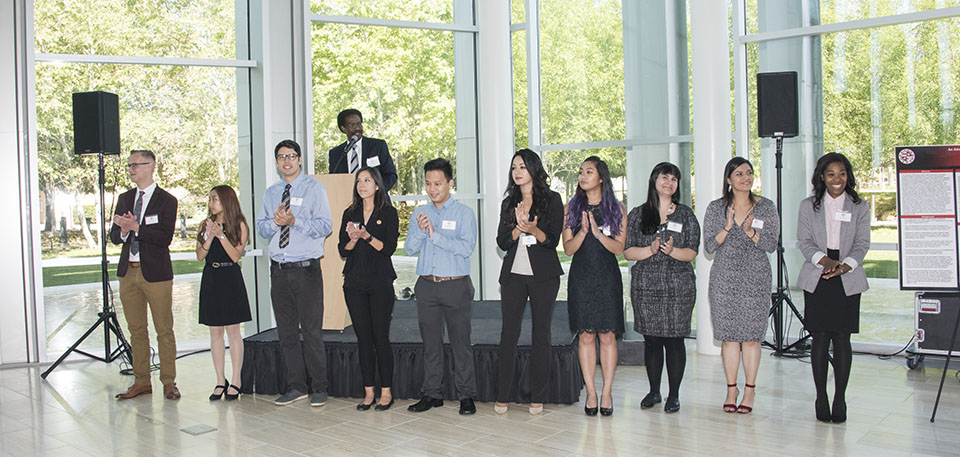
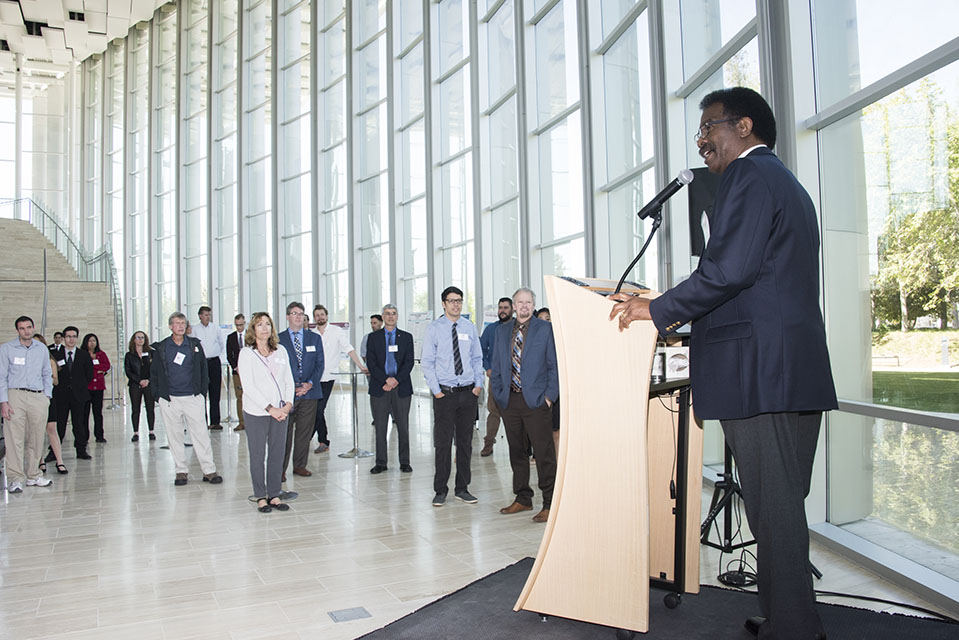
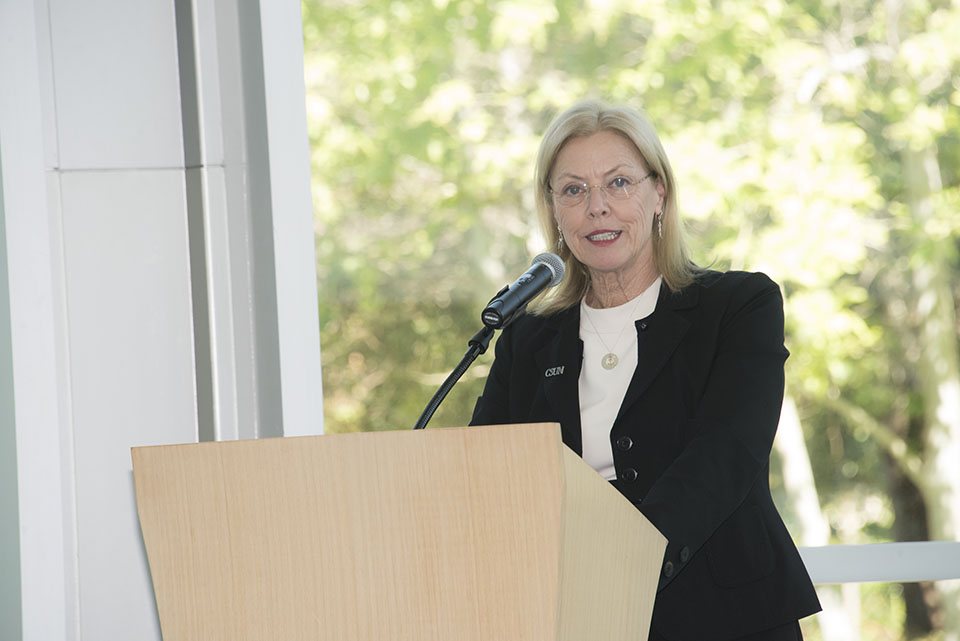
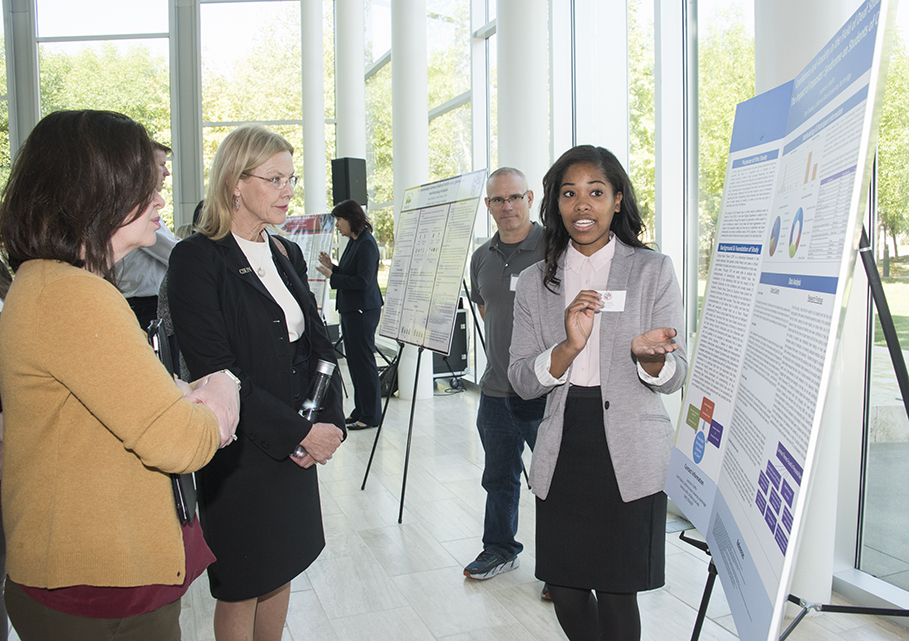
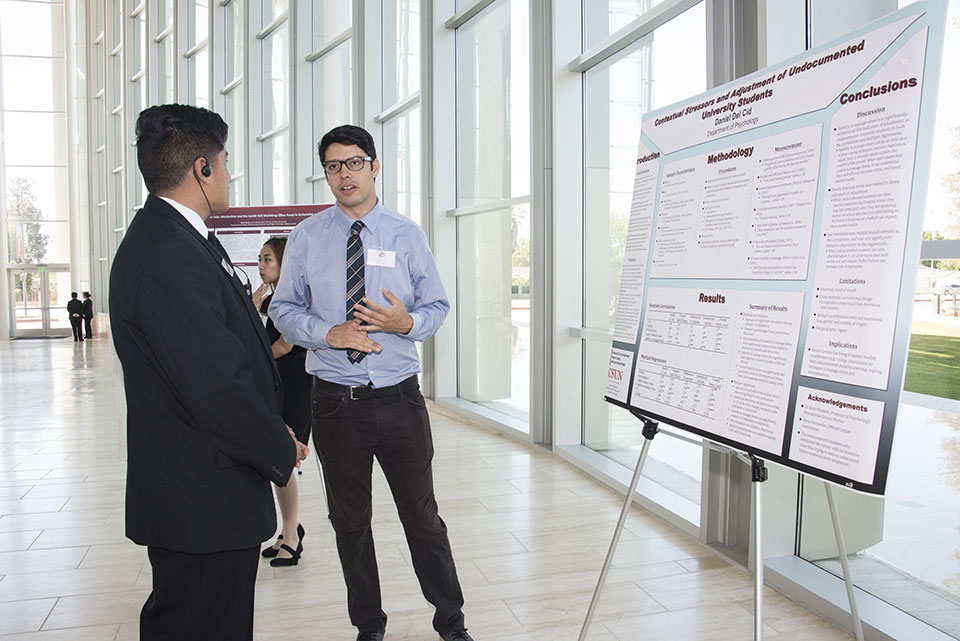
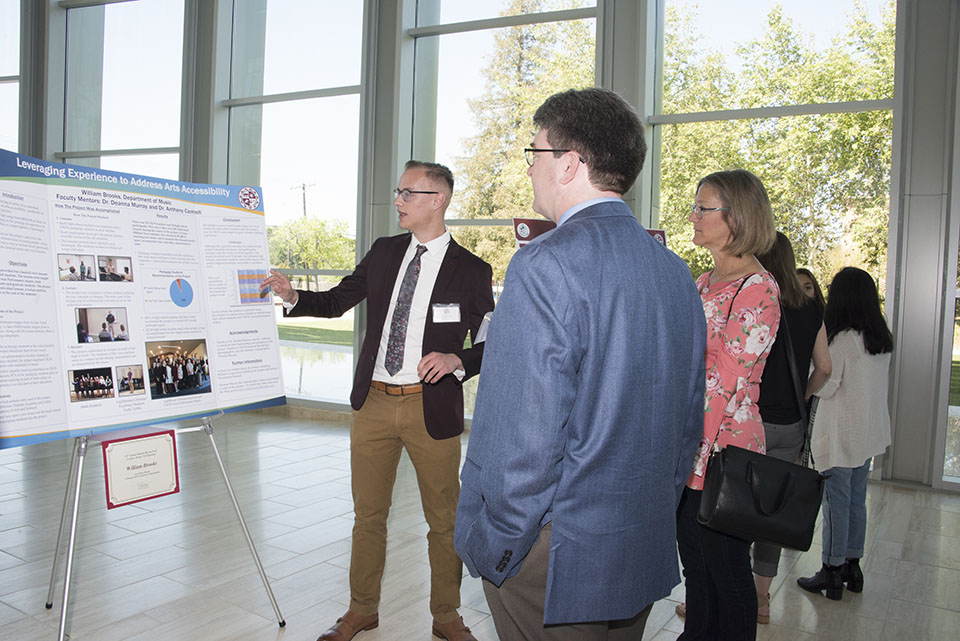
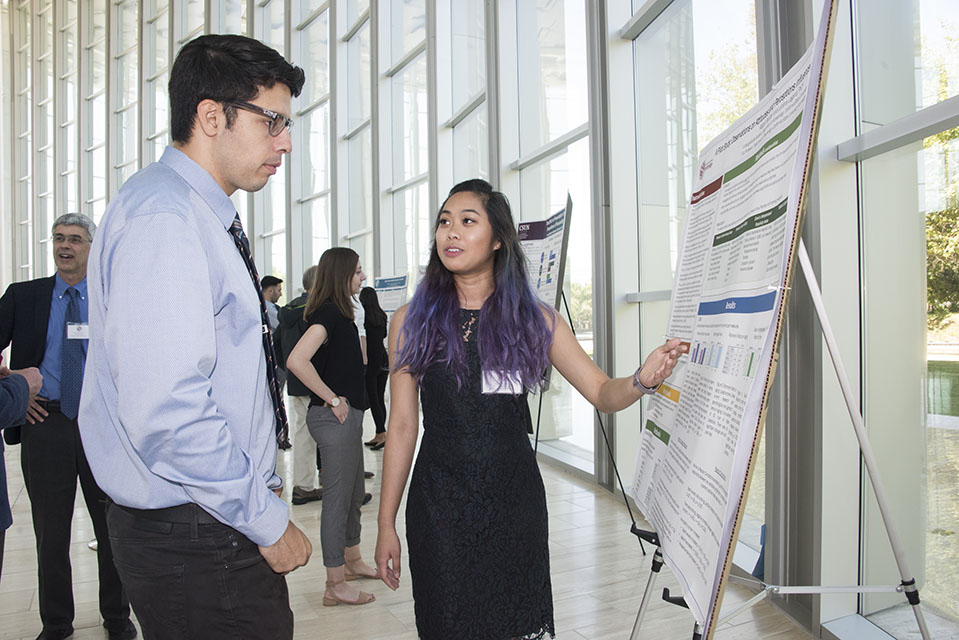
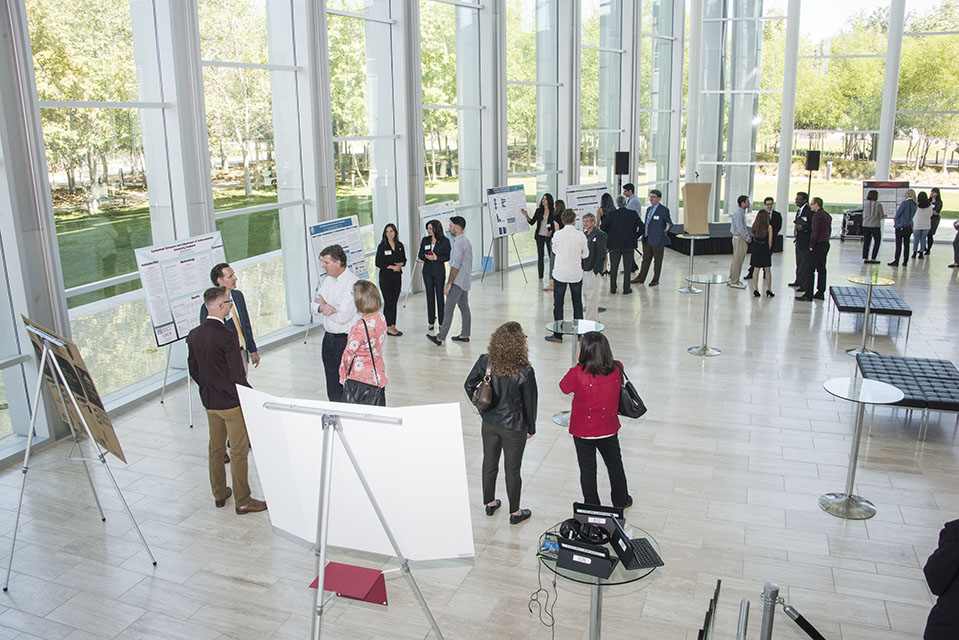
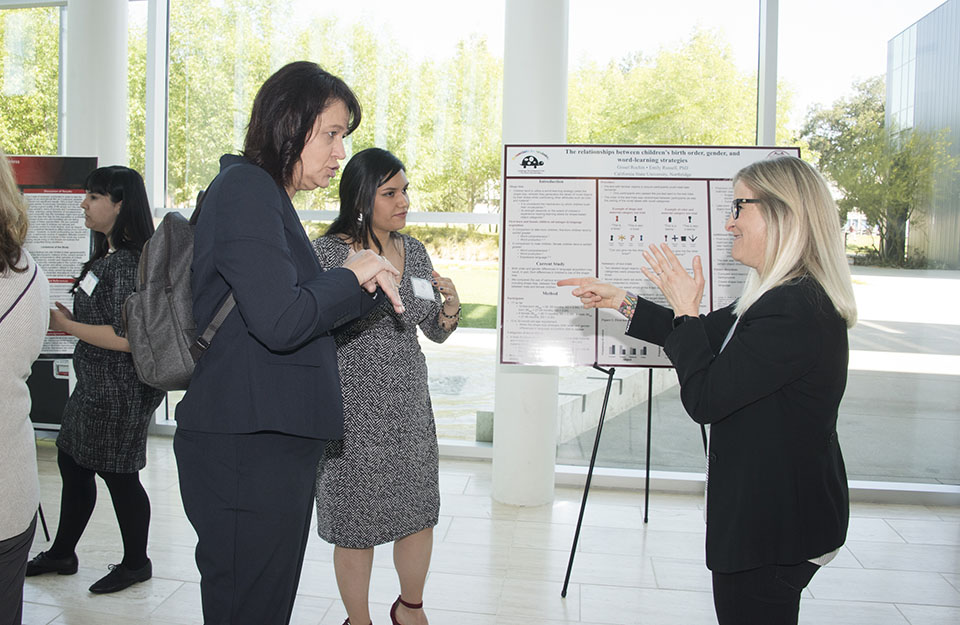
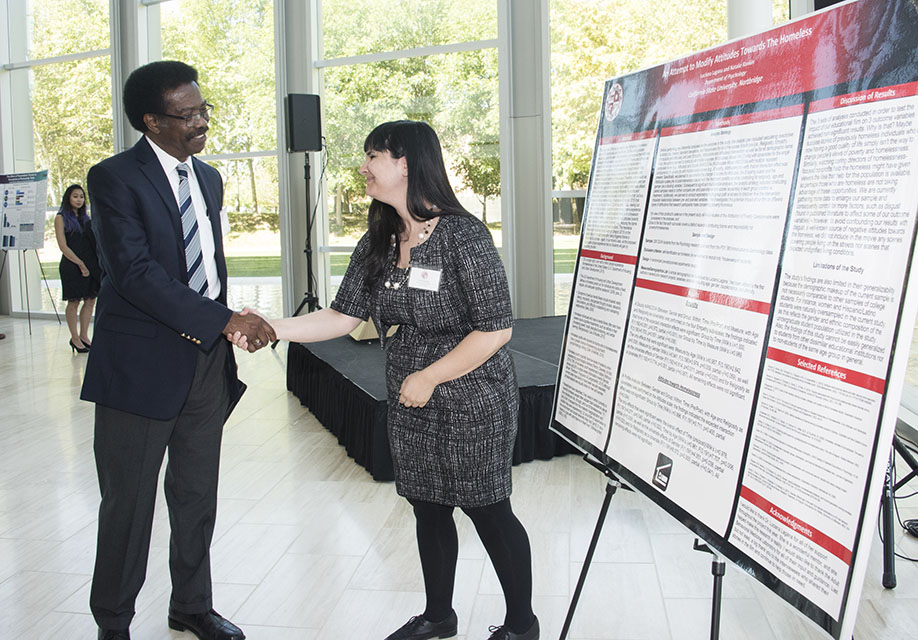
 experience
experience